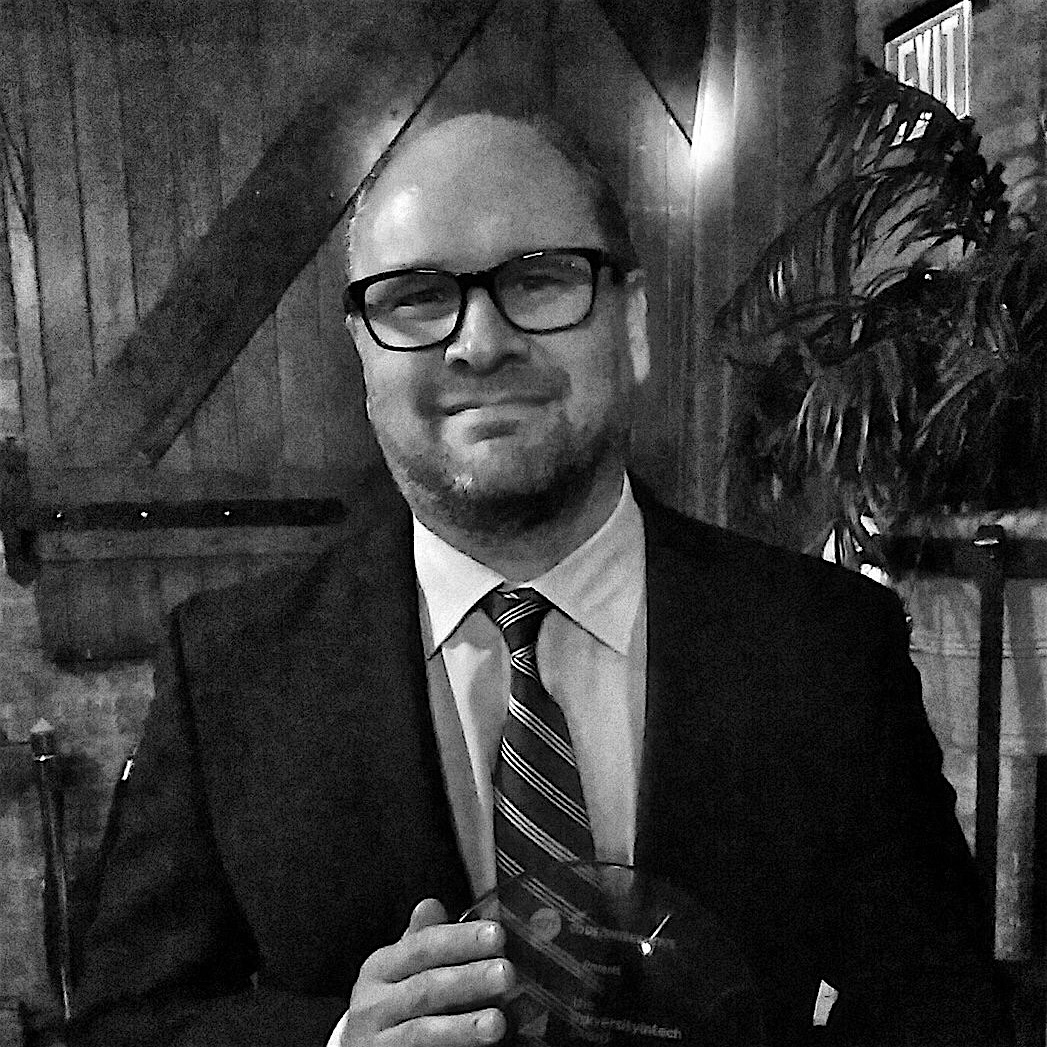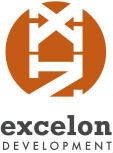Context-Driven Resume: Patterns and Anti-Patterns
Foreword
Have you ever been wondering why your job application got no response? Among dozens of possible reasons did you guess that your resume was the cause of the rejection?
Maybe, you didn’t. Maybe, you believed you did everything right, and your resume was a good match for the job description. And you were completely confident that you can do that job.
Be that as it may – and I felt exactly like that many times – let’s remember of subjective nature of job application process and perception of resumes. Let’s remember that a resume is a product that is evaluated by many users.
So, maybe, sometimes the rejection was indeed about the resume. Wouldn’t you want to know why? And what is the best way to learn about rejection than asking for a feedback?
Well, I’ve done it for you.
I reached out to the leaders in testing communities around the globe, and received very generous responses. I sincerely thank all of the contributors for taking time of their truly busy schedule, for treating my request seriously, and for the honest feedback.
Feelings alert! The feedback might appear somewhat harsh. Although, it’s not the feedback, it’s our emotional reaction to the rejection.
So bear with me. I intentionally asked for rejection patterns. Think of it from the very testing perspective – we’ve been granted a method, a tool, and a reasoning to test our resumes, and to reject what undermines their proposition.
Learn about the expectations of hiring managers to meet them!
Rob Lambert
 |
Rob Lambert is an Engineering Manager building a forward thinking, creative and awesome development team at NewVoiceMedia. Rob’s mission is to inspire people to achieve great things in their careers and to take control of their own learning and self development.
Rob is the author of a book Remaining Relevant And Employable, intended to help finding good jobs, excel in an interview, and improve chances of getting a job by developing the right skills. Rob runs a management blog called Cultivated Management. |
“Some things that I wouldn’t do with a CV”
- Don’t include a certification logo. Ever.
- Drop the “Personal Profile” from the CV – the one that says “I’m a….I’ve done…..I hope to one day….” – mostly pointless and usually very generic.
- Don’t just list technologies and tools – explain how competent you are and how you used them to solve problems. All test bug tracking systems are similar – so explain how you improved the process.
- Don’t just list tasks and actions and responsibilities – list achievements. What did you help to achieve in the business? What have you accomplished?
- ALWAYS include a link to your social profiles – preferably LinkedIn or your own website – and then always make sure your LinkedIn profile “sings”.
- Don’t include a photo of yourself on the CV – but do get a good headshot done for LinkedIn.
- Keep the CV to one page, two maximum – even contractors….it gets boring.
- Don’t just write reams of text – break it up with headers so people can skim read.
- Go for a hybrid of chronological and skills based CV – list your skills and achievements first – then a short chronological history of your work.
- Don’t fall in to the trap of talking loads about a job you did years ago. From my point of view what you’re doing NOW or have just done is more important.
- Don’t omit your hobbies or outside of work interests – they are useful for starting conversations and make you sound human.
- Edit edit edit. I can easily tell whether a CV has been proofed and edited – you need to remove every word that doesn’t add value – and this is hard.
- Never send a generic CV – always tailor the CV for the job you’re applying for.
- Be cautious of using words that are “strong” or “emotive” – like “control”, “demand”, “own”.
- Don’t use passive and weak words either like “might”, “should” or “could”.
- Don’t lie.
Thomas Ponnet
 |
Thomas Ponnet is a Tester and Test Manager who has worked in different domains – GIS, online gambling, big data analysis, and medical devices. He likes building up professional test teams and has quite a bit of experience recruiting testers. Originally from Germany, Thomas also lived in Scotland and Gibraltar.
“My approach to software testing is holistic and context driven, and I believe that most of IT problems can be tackled with a motivated and professional team. Observing people, processes, and communication patterns combined with some critical thinking go a long way in addressing challenges of software development and testing.” Website: ObServant Tester. |
“In case of doubt I usually contact the job seeker”
Thinking about it I actually find it harder to define anti-patterns as in case of doubt I usually contact the job seeker. Here are some although they are not always knock-out criteria, I try and see them in context to each other.
One anti-pattern would be a mismatch of cultural behaviour. If I’m working in a rather formal company and someone starts a cover letter with “My friend” and I’ve never seen them before it’s likely to go straight in the bin. The reason behind that is that I’d expect cultural problems if I were to employ them. If the rest of the CV is great I may rethink but they’re off to a bad start.
Another would be not reading the job description. If I’m stating I’m looking for a manual tester and the job seeker emphasize their automation skills it doesn’t go further. I used to state: “Preferred NO ISTQB certification but I won’t hold it against you if you have it”. If people emphasize their certifications they haven’t read the job spec so how can I expect they read the new feature spec?
If people haven’t worked in testing before but are applying for a testing position I want to read the reason why they think they can do the job. (In fact I always want to hear that). Saying they worked in support and it’s similar doesn’t cut it. I employed truck drivers and other people with very little software test experience who turned out great so have an open mindset. If they can convince me with a few sentences they are likely to be good in their later job.
As in your resume is a product post: if people confuse recruiter / hiring manager and robot. I don’t want to read a keyword laden CV, they can create a small section for that at the back so the robot finds it but it’s out of the way of the recruiter or hiring manager. That’s probably my number one turnoff.
I just realized that a generic pattern is a mismatch of what’s on offer to how the job seeker describes themselves or their experience. If someone wants to work in a smallish company or startup and only worked for say T-Mobile and Deutsche Bank before there’s an obvious mismatch that any tester should realize. If they address this mismatch it counts in their favour as they have just proven at least partially to have a testers mindset. If the mismatch is not addressed I’m left to wonder what else they’d be missing when testing software so I won’t invite them for an interview.
Rajesh Mathur

|
Rajesh is Head of Testing at an Australian Federal regulatory agency based in Melbourne, Australia.An International speaker, blogger and writer, Raj has spoken at various conferences and has written articles for numerous publications. A student of James Bach and Michael Bolton, Raj is a dedicated context-driven tester who believes less in dogmatism and more in pragmatism of testing. Hence his blog, http://www.dogmatictesting.com/.
Raj has held senior test management positions with Cathay Pacific Airways, Nokia and Sopra-Steria Group amongst others living and working in US, UK, India and Hong Kong China. He is the co-founder of the meetup group TEAM in Melbourne and also the founder of Hong Kong & China Software Testing Group in Hong Kong. LinkedIn: au.linkedin.com/in/rajeshmathur |
“The trouble with CVs is that they often don’t tell a story”
The technical CVs, or in general testing CVs, are usually a laundry list of testing types, test deliverables (for example, “in this job I was responsible for writing test cases, test plans, test strategies, and I created requirement traceability matrix blah blah blah..”), buzzwords, technologies and tools. All of them wrapped around a project which, as a hiring manager, I have no idea of or have no interest about.
Job description anti-patterns:
- generalized summary
- merely a list of tools and technologies
- vague list of projects
Most CVs I have come across (and I have seen lots), do not help me pick them. Candidates do not communicate to the recruiter or hiring manager through their CVs. I am not blaming candidates for this entirely. Most position descriptions are poorly written too. And therefore it is hard to customize a CV. But candidates have tools to assist them. They do not do their research about the organization or hiring managers and the position they are applying for. Without proper research, they fail to customize the CV.
I want candidates to tell me about their competency. “I know test planning” doesn’t help. Context matters! So a little bit of context around competency goes in candidates’ favor. Similarly, people write: “I am a great team member”. How do I know that?
Competency anti-pattern: not adding facts or examples to support your claims.
As a tester, I pay a lot of attention to communication skills (verbal and written both). Many candidates fail at the first step when a recruiter or a hiring manager reviews their CV. So when a candidate says, “I possess excellent communication skills“, I want them to back that up. For example, in my CV I say: “As a test manager at XYZ company, I coordinated bug triage meetings which included testers, developers, PMs, BAs”. And, “I coordinated testing between distributed teams located in India, US, UK, and France..”. At least that gives a hiring manager some idea that I was able to communicate, whether good or bad, is a second stage question.
Keith Klain
 |
Keith Klain has over 20 years of experience managing enterprise-wide quality programs for financial services and global IT consulting firms. Keith loves solving organizational problems through better software testing and he is passionate about coaching and empowering testers.
LinkedIn: www.linkedin.com/in/keithklain/ |
“No accomplishments?”
- No specific accomplishments, just projects listed – I want to know what YOU contributed not just the type of work you did.
- “I” and “we” used interchangeably.
- Jargon-laden sentences – I like things to be in plain English using simple ideas and structures.
- Over 3 pages of resume – if you can’t keep it to a minimum of concise info I lose interest.
Matthew Heusser
 |
As the Managing Director of Excelon Development, Matthew Heusser consults, trains, and does software delivery while helping others do it.
Matt is also a former member of the board of directors of the Association for Software Testing and creator of Lean Software Testing family of methods. Probably best known for his writing, Matt is the lead editor of “How to Reduce The Cost of Software Testing” (Taylor and Francis, 2011) and editor for StickyMinds.com. Matt is a recipient of the 2015 Most Popular Online Contributor to Agile at the Agile Awards. A 2014 recipient of the Most Influential Agile Test Professional Person Award (MAITPP) in Potsdam, Germany. Matt also served as the lead organizer of the Software Testing World Cup. Website: Creative Chaos |
“Not telling what you DID”
- Not telling what you DID.
- “Created and Executed Test Cases” – that tells me you planned the work and worked the plan, not what you DID.
- No indication of the cognitive processes of testing.
- For example, just listing buzzwords and tools.
- Not telling what you enabled or made happen, for the business.
- For example, just listing projects and technologies.
- Out-of-date tool names or erroneous tool names.
- QTP is now replaced by UFT, but your resume says QTP for a contract you started 9 months ago.
- Or worse, I literally saw “Mercury TestComplete” once.
- Confusion between tools, protocols, and technologies.
- REST, SOAP, and SOAPui listed as if SOAPui was the GUI version of SOAP.
Christin Wiedemann
 |
Christin Wiedemann is a Co-CEO and Chief Scientist of PQA Testing. She holds Ph.D. in physics and teaches testers to apply scientific method.
Christin is also Director of Communications at Society for Canadian Woman in Science and Technology. Christin is passionate about continuous scholarship and is actively engaged in teaching and mentoring. She is a frequent speaker at local and international conferences. LinkedIn: ca.linkedin.com/in/christinwiedemann |
“Not doing a decent research and preparation”
- No cover letter.
- I know you are probably sending out your resume to lots of companies and staffing agencies, but I’d like to know that you at least took the time to actually read the job posting and do enough research about our company to craft a tailored cover letter. Otherwise I find it hard to believe you really want this job.
- Can’t spell my name or the company name.
- I do get some resumes sent to me directly, and if you’ve managed to get hold of my e-mail address I expect you to be able to spell my name right (my mail address is firstname.lastname). Not making the effort to get that right shows a lack of care, respect and attention to detail.
- Cluttered resume.
- I have a very short attention span and a lot of resumes to read. Too much text or a cluttered format makes it tempting to just put the resume away and grab another one. It needs to be easy to read. I don’t expect you to list everything you’ve ever done. A cluttered resume makes me think you just did a Google sort for buzz words and wrote them down. Something has to stand out and catch my attention. Nothing stands out in a cluttered resume. The worst examples are when people reduce the side margin to be able to fit what they think is important in fewer pages. There has to be empty space.
- Typos and errors.
- All formatting errors bug me. If I get a Word file sent to me with typos that are marked by squiggly lines that means the spell checker probably found the typos on the applicants machine too. Almost every resume I see is in Word but few applicants seem to use the spell checker. If you don’t see the typos you probably don’t have enough attention to detail, and if you don’t know how to use the spell checker you’re not tech savvy enough. Don’t use 16 different fonts. Use consistent spelling. If you’re capitalizing Regression testing, do it throughout.
- Testing is just a job for you?
- No community engagement, never go to meetups, events, conferences, etc.? How do you give back to the community and share your experiences and skills?
- No learning?
- I want to know how you learn. I’ll ask in an interview, but great if it’s in the resume. Do you read books, blogs, articles? Talk to people? Using Google is not the answer I’m looking for. No commentary on how they learnt to test. There’s not a lot of testing training programs, and I’ve never seen a resume with a degree in testing so I’d like to know how you learnt how to test, or I’ll assume you still don’t know who to do it.
- Lack of verbs.
- Listing concepts (nouns) and no actions (verbs). Not telling a story. No results. Don’t just say you’ve done acceptance testing – how have you done it, when, what was successful, what was challenging? If I wanted a list of test types, test levels etc. I could just use Wikipedia.
Karen Nicole Johnson
 |
Karen N. Johnson has worked as a software test consultant for several years. While focused on software testing and predominantly working with the testers throughout an organization, Karen helps teams and organizations improve quality overall. Her professional activities include speaking at conferences both in the US and internationally.
Karen is a contributing author to the book, Beautiful Testing by O’Reilly publishers. She is the co-founder of the WREST workshop, the Workshop for Regulated Software Testing. She has published numerous articles; she blogs and tweets about her experiences. Find her on Twitter as @karennjohnson (note the two n’s) and her website: http://www.karennicolejohnson.com. |
“Tell me what you know, tell me what you’re good at, tell me what you want to do, and also tell me who you are“
Resumes that overstate technical languages and/or tools
When I see a resume with a long list of programming languages and tools, a list longer than what is likely or practical for one person to have acquired, I’m likely to toss the resume in the “no thank you” pile. The irony is that when someone lists many tools, they are likely to have no or limited knowledge of any tools. What is more likely when a resume has a long list of tools, is that the person will have some market awareness of the tools being used but rarely will they be the person who has the experience they are claiming to have. If a tool was used at your last position but you personally acquired no experience – direct experience with using the tool – do not list the tool on your resume. Being in the same room with something does not qualify you as having experience with that something.
Instead, I would prefer to know:
- Tell me what you know, even if it is only one tool – be honest.
- Tell me what you’re good at – even if you wish you were good at something else or would like to move onto something else in the future, tell me what you’re good at
- Tell me what you’d like to do. Resumes often miss the “old-fashioned” objective sentence at the top of the resume. What is your objective for your next position? For example, “I’d like to be testing a mobile app” or “I’d like to work on learning more on test automation with web services.”
Resumes of people who have done it all!
Perhaps this is another variation on the resumes of people who claim to know all the tools and languages but I look out for resumes where a person has managed, directed or even “fixed” everything at a company. While it is ok to claim this at one position or to be able to say you had influence – even heavy influence to make changes – have you really been the key person responsible for so considerable transformation and organizational change while holding the job position of tester? I smell overstating and a potential narcissistic belief that you are the one who has done it all.
Instead, keep it real. If you are the person who championed to bring in an automation tool and got the automation up and running – great, I want to hear about that. But continually (position after position) to claim the company was “messed up” and you single-handedly fixed everything sends the message that you are not a team player and that you probably over-believe in your capabilities. How easy (or not) will you work with others when you believe you are the sole solution? And if you fear you don’t have something “big” to say on your resume, tell me what you are passionate about. I would be fine to see a resume that states and shows, I’ve tested websites for the past four years but now I want to test in a different environment, like testing a web service, API or mobile app. Don’t fake that you have already done this – be honest. Let me make the assessment about whether I/we can “afford” the time it might take to get you up and running with something new.
Resumes that are many pages long listing everything from everywhere
Very long resumes show me that a person doesn’t have a sense of the big picture, they are not aware of what they have done that stands out. Resumes that have many bullet points highlighting specific work details from each position strike me as someone who is throwing every possible thing they have done into a list in the hopes that something will. These resumes are hard to read. These resumes offer the impression, I am desperate for work and I will do anything I am asked. Often these resumes come from recruiters who don’t understand what skills are needed and so they turn the person’s resume into a laundry list of anything the person has ever done at work. Less is more.
Instead, in addition to the three items above (tell me what you know, tell me what you’re good at, tell me what you want to do) also tell me who you are. I’m trying to assess – are you a quiet not very social tester that will be well-suited to a quieter less talkative team and will function well as the only tester on a small scrum team? Are you highly social and I should try to match you to a more outgoing highly interactive team? Are you hoping to make a change out of testing and want more opportunity to write automation as you aspire to become a developer – I might be able to help make that happen, tell me. Be an individual, be yourself, don’t let a recruiter turn your resume into “I can be anything you need.”
Afterword
- Are you a job seeker and want to know more? Ask your questions in the comments section and I’ll make sure to follow up with the panel.
- Are you a hiring manager, and want to agree and disagree? – Thank you for commenting!
- Are you a recruiter who wants to weigh in? Please, comment.
- The above is not limiting – please go ahead, ask, discuss, or tell your experience.



2 responses to "Context-Driven Resume: Patterns and Anti-Patterns"
Hello Everyone ,
Thanks a lot for the valuable guidance and great ideas .Today I have answers to all questions, for which I was struggling.
Definitely my resume is not meeting all the above mentioned expectations, but I am happy my vision is clear , that will help me to write my resume in a better way.
Kind Regards
Aprajita
Hi Albert,
Great composite of experts. Very valuable information indeed. Thanks for doing this.
There seems to be a growing trend among more experienced testers to down-play the resume as the preferred way to advertise to prospective employers — in deference to one’s blog, for example.
I’m wondering if you see this trend also and what you think of it.
Thanks,
Tom Sullivan
[ Albert’s reply:
Thank you, Thomas! I’m glad you found it useful.
I don’t see a trend of downplaying resume. Rather, expectations on one’s “digital footprint” have evolved. Only resume isn’t as good. People want to learn more about you before contacting you.
So yes – blog, github, publications, and other elements do help to stand out.
Thanks! ]